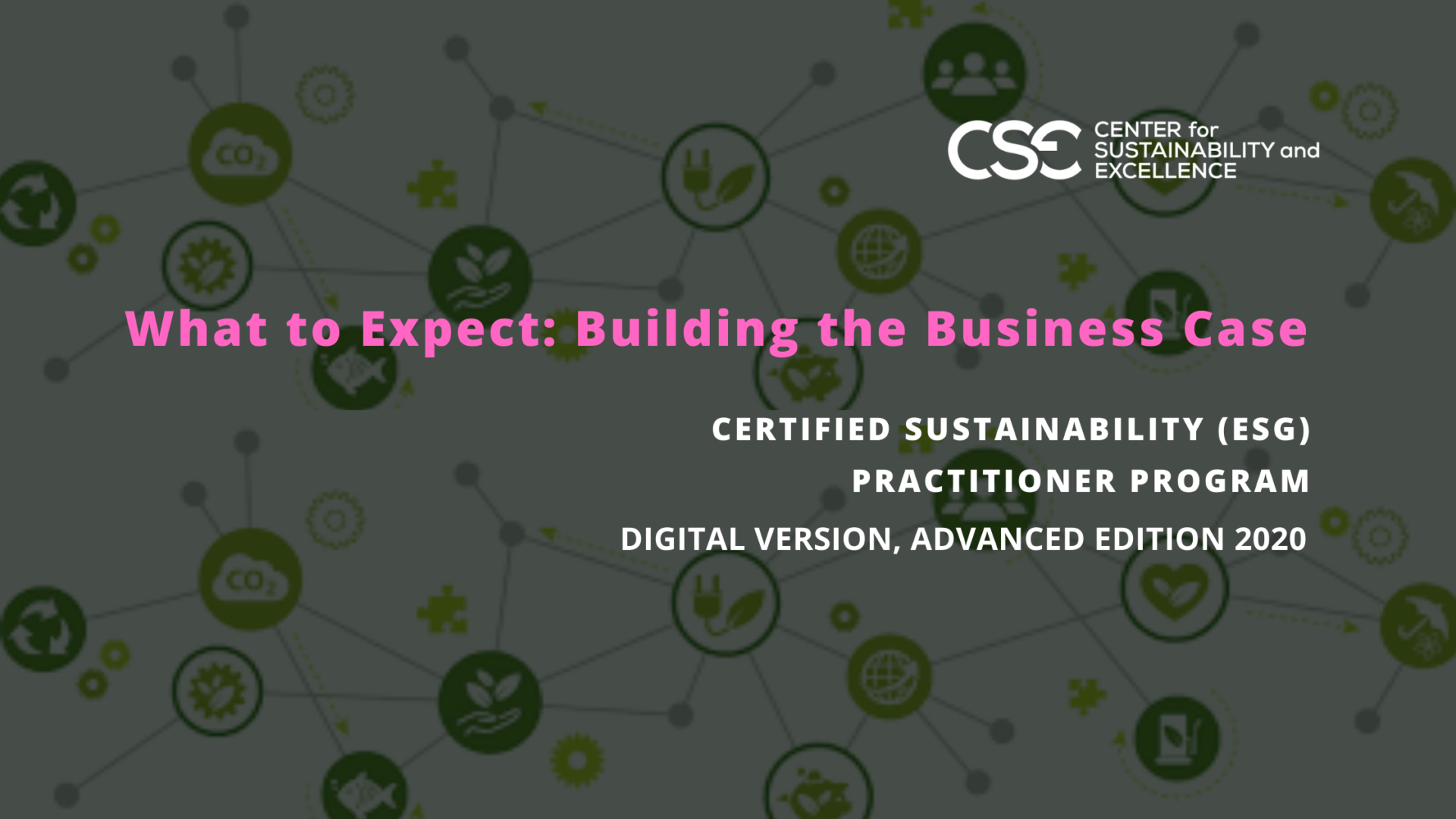What to Expect: Building the Business Case
San Francisco is the heart of the tech world. The city also has some of the most progressive environmental and social mandates in the US. One would think Silicon Valley corporations would be equally sensitive to sustainability issues. CSE research shows this is not the case.
What are they missing that you’ll know after taking the CSE Digital Certified Sustainability (ESG) Practitioner Program (Advanced Edition)?
CSE trainings start and finish by making the business case for sustainability. If a company cannot advance financially, they can’t help their community of stakeholders. A key stakeholder group is investors. Investors want to see that a company’s income is enhanced by its sustainability efforts.
A recent survey from Kin&Co asked adults about their attitudes toward sustainable business and climate action. Sixty-nine percent agree that climate change is an imminent “urgent issue” for brands, rather than a distant challenge. Fifty-nine percent want their favorite brands to declare a “Climate Emergency”. The research found that climate-related protests combined with mainstream media attention to climate change science, already influences consumer and employee behavior. Thirty-five percent want their employer to take bolder and more ambitious action on climate change. Over 30% responded they would respect their company’s C-suite more if they led on Climate Change. Consumer awareness drives sales. Employee satisfaction drives retention – both key to business success.
If you don’t want to dig into corporate reports, ranking agencies do the work for you.
The S&P Dow Jones Indices (S&P DJI) recently added to its global Environmental, Social and Governance (ESG) index family. The new set of indices provide ESG performance profiles enhancing leading indices including the S&P Global 1200, Europe 350, S&P/ASX 200 and S&P Japan 500. The new indices also include ESG versions of S&P DJI’s country and regional benchmarks covering North America, Europe, the Middle East, Africa and Asia-Pacific. This release follows the April 2019 debut of the S&P 500® ESG Index. Eligibility criteria track companies’ ESG Scores, business activities and adherence to the UN Global Compact (UNGC). Index criteria also exclude companies such as those involved with tobacco or controversial weapons, for example.
If you didn’t follow that last paragraph, you will after taking the CSE training. Corporations need customers, employees and investors to grow. These key stakeholders are demonstrating their reliance on sustainability issues to judge which products to buy, where to work and where to invest. Without them, there is no business. So, expect to leave a CSE training knowing how to make the business case for your company.
Upcoming Digital Certified Sustainability (ESG) Practitioner Programs.







